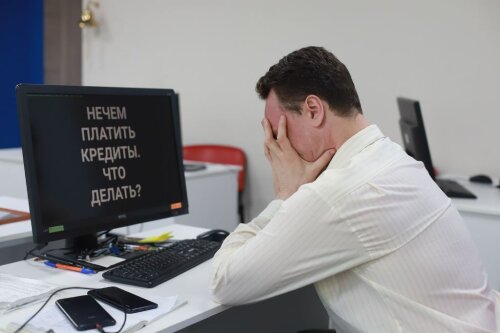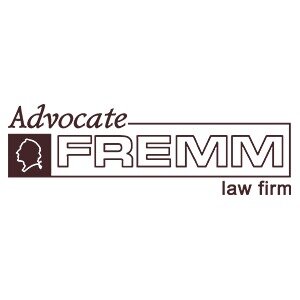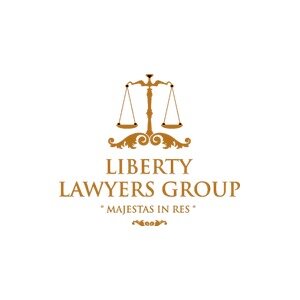Best Housing, Construction & Development Lawyers in Russia
Share your needs with us, get contacted by law firms.
Free. Takes 2 min.
Free Guide to Hiring a Real Estate Lawyer
Or refine your search by selecting a city:
List of the best lawyers in Russia
About Housing, Construction & Development Law in Russia
Housing, Construction, and Development law in Russia encompasses a wide range of regulations governing the planning, construction, and occupation of residential and commercial properties. These laws are designed to ensure the safety, reliability, and aesthetic nature of buildings, while also promoting fair transactions and protecting property rights. The legal framework is complex, reflecting the intertwining of federal, regional, and municipal regulations, each with unique aspects pertinent to urban and rural development.
Why You May Need a Lawyer
There are several situations in which individuals or companies might require legal assistance in the field of Housing, Construction & Development in Russia:
- Purchase or sale of property: To ensure the transaction is conducted legally and transparently, without hidden liabilities.
- Construction disputes: Arising from contractual disagreements, construction delays, or defective building work.
- Development permits: Assistance with obtaining necessary permits and approvals from authorities.
- Tenancy issues: Legal advice related to rental agreements, eviction processes, or tenant rights.
- Compliance with local regulations: Ensuring adherence to building codes, safety standards, and environmental regulations.
Local Laws Overview
In Russia, the Housing Code and Urban Planning Code outline the regulatory framework for housing and construction activities. Key aspects include:
- Urban Planning: Regulations that govern land use, zoning, and urban development plans.
- Construction Licensing: Requirements for obtaining construction licenses and permits for various types of development projects.
- Building Regulations: Standards and norms for construction practices, including safety, sanitation, and energy efficiency.
- Property Rights: Legalities related to ownership, use, and transfer of property.
- Dispute Resolution: Mechanisms available for resolving disputes in construction and property transactions.
Frequently Asked Questions
What is the procedure for buying property in Russia?
The procedure involves negotiating and drafting a sales contract, performing due diligence, registering the transaction with the Federal Service for State Registration, Cadastre, and Cartography (Rosreestr), and transferring funds.
Do foreigners have the right to own real estate in Russia?
Yes, foreigners can buy, own, and sell real estate in Russia, although restrictions may apply to land plots used for agriculture or located near borders.
How are construction permits obtained in Russia?
Construction permits are obtained through local municipal authorities. The process involves submitting application documents, design plans, and assessments of environmental and engineering conditions of the site.
What are the common types of construction disputes in Russia?
Common disputes include issues such as breach of contract, construction defects, delays in completion, and cost overruns.
How does one resolve a tenancy dispute?
Tenancy disputes can often be resolved through negotiation, mediation, or, if necessary, civil court proceedings. It is advisable to seek legal counsel for complex issues.
What safety standards must construction projects adhere to?
Safety standards include compliance with fire, structural, electrical, and environmental safety regulations as outlined by the Russian construction codes (SNiP and GOST).
What is the role of Rosreestr?
Rosreestr is the government body responsible for the registration of real estate rights, transactions, and cadastre services in Russia.
How is property tax calculated?
Property tax in Russia is typically calculated based on the cadastral value of the property, varying by the type and use of the property.
What zoning regulations should developers be aware of?
Developers must adhere to zoning regulations which dictate permissible land uses, density, height restrictions, and green space allocations.
Is it necessary to have a lawyer for property transactions?
While not legally required, having a lawyer can help ensure that all legal aspects are handled correctly, mitigating risks of disputes or errors.
Additional Resources
For those seeking more information or assistance in Housing, Construction & Development in Russia, the following resources may be helpful:
- Rosreestr: The official body for land and property registration.
- Federal Antimonopoly Service: Oversee fair competition and regulatory compliance.
- Ministry of Construction, Housing, and Utilities: Provides guidelines and support for construction and housing projects.
- Russian Union of Builders: An organization representing the interests of construction and real estate industries.
Next Steps
If you need legal assistance in Housing, Construction & Development, consider the following steps:
- Consultation: Schedule a consultation with a lawyer specializing in real estate and construction law to discuss your specific needs and concerns.
- Research: Gather all relevant documents and information about your case to provide your lawyer with a comprehensive understanding.
- Assess Options: Work with your lawyer to evaluate your options and develop a legal strategy tailored to your situation.
- Legal Representation: If necessary, engage a lawyer to represent you in negotiations, disputes, or court proceedings.
Lawzana helps you find the best lawyers and law firms in Russia through a curated and pre-screened list of qualified legal professionals. Our platform offers rankings and detailed profiles of attorneys and law firms, allowing you to compare based on practice areas, including Housing, Construction & Development, experience, and client feedback.
Each profile includes a description of the firm's areas of practice, client reviews, team members and partners, year of establishment, spoken languages, office locations, contact information, social media presence, and any published articles or resources. Most firms on our platform speak English and are experienced in both local and international legal matters.
Get a quote from top-rated law firms in Russia — quickly, securely, and without unnecessary hassle.
Disclaimer:
The information provided on this page is for general informational purposes only and does not constitute legal advice. While we strive to ensure the accuracy and relevance of the content, legal information may change over time, and interpretations of the law can vary. You should always consult with a qualified legal professional for advice specific to your situation.
We disclaim all liability for actions taken or not taken based on the content of this page. If you believe any information is incorrect or outdated, please contact us, and we will review and update it where appropriate.
Browse housing, construction & development law firms by city in Russia
Refine your search by selecting a city.
















